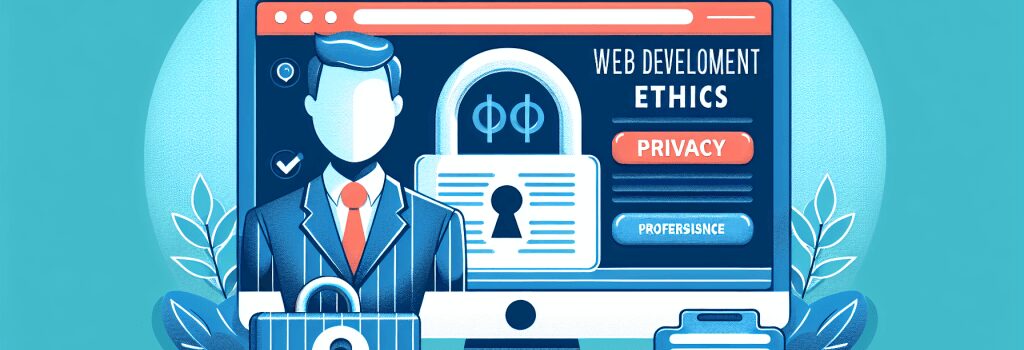Web Development Ethics: Privacy and Professionalism

As we dive into the foundational skills for building the web, ranging from HTML, PHP, CSS, to JavaScript and mastering platforms like WordPress, it’s crucial to highlight an often overlooked aspect of becoming a web developer: the ethical considerations. This chapter focuses on the key principles of ethics in web development, particularly emphasizing Privacy and Professionalism.
Understanding the Ethical Framework in Web Development
Ethics in web development isn’t just about adhering to legal standards but also about ensuring fairness, accessibility, and respect for user privacy. As the digital world continues to evolve, ethical practices have become paramount in fostering trust and integrity in the technologies we create.
Privacy: Keeping User Data Secure
Privacy is at the forefront of ethical web development. With increasing concerns over data breaches and misuse of personal information, developers have a profound responsibility to protect user data. This means implementing robust security measures, such as encryption and secure authentication methods, to safeguard user information from unauthorized access. Additionally, transparency about data handling practices through clear privacy policies is essential in building user trust.
<h4>Best Practices for Ensuring Privacy– Implement Strong Data Protection Measures: Use HTTPS, encryption, and secure authentication protocols to protect user data.
– Be Transparent: Have a clear and accessible privacy policy that informs users about how their data is used, stored, and protected.
– Data Minimization: Collect only the data that is necessary for the functionality of your application or website.
Professionalism: Maintaining High Standards
Professionalism encompasses a broad spectrum of behaviors and practices in web development. This includes writing clean, well-documented code, adhering to project deadlines, and effectively communicating with clients or team members. Moreover, it involves staying updated with the latest industry standards and technologies, ensuring the products you develop are not only functional but also secure and user-friendly.
<h4>Cultivating a Professional Work Ethic– Continuous Learning: Stay abreast of the latest developments in web technologies and best practices.
– Quality Assurance: Regularly test your work for bugs, vulnerabilities, and usability issues.
– Effective Communication: Keep clients and stakeholders informed about project progress and decisions.
Ethical Responsibility in the Digital Age
As web developers, we play a crucial role in shaping the digital landscape. Our decisions can significantly impact users’ privacy, security, and overall online experience. It is our ethical responsibility to prioritize the well-being of users, committing to practices that ensure the creation of safe, accessible, and trustworthy digital spaces.
Through embracing privacy and professionalism, we not only enhance the credibility and reliability of our work but also contribute to a more ethical and equitable digital world. Let this commitment to ethical web development guide you as you embark on your journey to becoming a skilled and responsible web developer.


